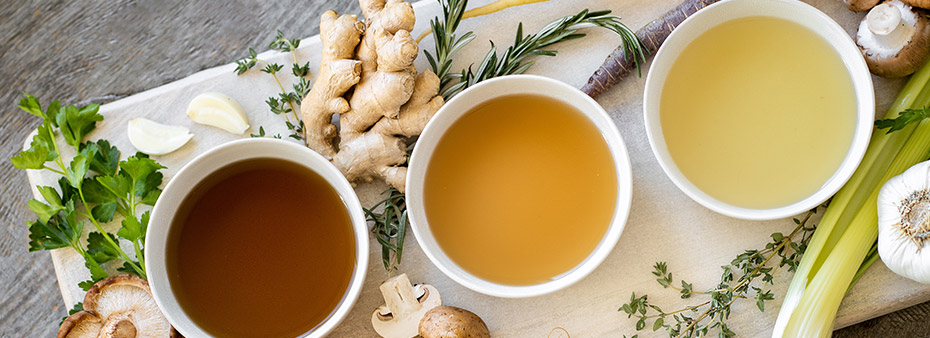As a practitioner, you have probably heard statements like these from patients:
- “I feel bloated after I eat.”
- “I have a stomachache after mealtimes that eventually leads to diarrhea.”
- “I find myself confined to a bathroom after eating.”
- “Eating has become a difficult task that I don’t look forward to.”
Almost everyone experiences these symptoms at some point. But when they are a daily reality, these symptoms become a significant burden in patients’ lives. Patients often feel isolated and limited in their day-to-day activities; they don’t know where to turn. As practitioners, we must try to understand the frustration these patients are experiencing and recognize that our expertise in pinpointing the root cause of symptoms will be the key to helping these patients. Examples like these are classic cases of irritable bowel syndrome (IBS).
What is IBS?
According to the American College of Gastroenterology, IBS affects between 25 and 45 million people in the United States.1 Although common, IBS is often underdiagnosed. Out of the 10-15% of the American adult population that suffers from IBS symptoms, only 5-7% have been diagnosed with the disease.1
Symptoms of IBS usually occur over a period of several months, and may include:
- Abdominal pain or cramping that can happen randomly or soon after a meal (typically relieved or partially relieved by a bowel movement)
- Bloating and excessive gas
- Diarrhea or constipation (or both)
- Mucus in the stool
Historically, IBS is diagnosed as a group of symptoms according to Rome criteria2 and is often considered a “catch-all” diagnosis in clinic if other GI diseases cannot be pinpointed.3 The problem with the “catch-all” diagnosis of IBS is that it does not speak to the wide -array of possible underlying causes.
New research suggests that IBS can often overlap with more defined conditions like small intestinal bacterial overgrowth (SIBO). In fact, more than 70% of people with IBS have undiagnosed SIBO.4 In a previous blog post, Dr. Tom Guilliams pointed out that many clinicians consider IBS and SIBO closely associated because the symptoms overlap considerably (e.g., bloating, abdominal distension/ pain/discomfort, diarrhea, etc.). However, epidemiological research shows that the relationship between the two conditions varies considerably depending on the diagnostic criteria used.5
Lifestyle Changes to Manage IBS
One thing is for certain: Among patients with IBS/SIBO, motility from the body’s migrating motor complex (MMC) is shown to be reduced.6 Defined conditions linked to motility deficiencies like thyroid dysfunction and diabetes can be easily tested and assessed in clinic. However, if these conditions are ruled out, we need to look at lifestyle factors that may be contributing to motility, particularly how the patient is eating. A stressful, on-the-go lifestyle of constant snacking or grazing between meals and not having adequate time to fast between meals might be primary sources of the problem.
Since the MMC kicks in during a fasting state of 90 minutes or more, it is important to avoid snacking between meals, and allow the natural MMC activity to sweep and cleanse the stomach and small intestine of food particles and unwanted bacteria, as well as help starve out any overgrowth of pathogenic bacteria in the gut that may be feeding on food. In addition, fasting activates autophagy, a cellular cleaning that removes byproducts and debris of cellular metabolism that accumulate as toxins in the body.7
In a previous blog post, we discussed how a natural combination of ginger and artichoke taken as a dietary supplement can work as a prokinetic to kickstart motility by modulating serotonin receptors in the gut.8 For IBS/SIBO patients, in addition to nutritional supplementation with ginger and artichoke, consider light intermittent fasting to help the body’s natural cleansing motility in the gut. Intermittent fasting 12–16 hours between meals, and especially overnight, may help reduce the risk of IBS/SIBO occurrence.

THE BOTTOM LINE
For such difficult-to-pinpoint cases, motility is key! Along with prokinetic supplementation with ginger and artichoke, patients should avoid snacking between meals and opting for an early dinner, so the MMC can do what it is designed to do, and the body’s natural gut-cleansing activity can begin.

Joseph Ornelas, PhD, DC
Dr. Joseph Ornelas is the Pillars of GI Health Brand Manager at Lifestyle Matrix Resource Center. He holds a PhD from University of Illinois with concentration in Health Economics, an MA degree in Public Policy from the Harris School at the University of Chicago, an MS degree in Health Systems Management from Rush University, and a DC degree from National University of Health Sciences. As a licensed provider and health economist, Dr. Ornelas has published numerous evidence-based clinical practice guidelines, helping to improve quality standards of care and provide value for health care practitioners across several specialty areas.
References
- https://gi.org/topics/irritable-bowel-syndrome/
- Drossman DA. Functional Gastrointestinal Disorders: History, Pathophysiology, Clinical Features and Rome IV. Gastroenterology. 2016 Feb 19:S0016-5085(16)00223-7. doi: 10.1053/j.gastro.2016.02.032. Epub ahead of print. PMID: 27144617.
- Burbige EJ. Irritable bowel syndrome: diagnostic approaches in clinical practice. Clin Exp Gastroenterol. 2010;3:127-137. doi:10.2147/CEG.S12596
- Ghoshal UC, Shukla R, Ghoshal U. Small Intestinal Bacterial Overgrowth and Irritable Bowel Syndrome: A Bridge between Functional Organic Dichotomy. Gut Liver. 2017 Mar 15;11(2):196-208. doi: 10.5009/gnl16126. PMID: 28274108; PMCID: PMC5347643.
- Ford AC, Spiegel BM, Talley NJ, Moayyedi P. Small intestinal bacterial overgrowth in irritable bowel syndrome: systematic review and meta-analysis. Clin Gastroenterol Hepatol. 2009 Dec;7(12):1279-86. doi: 10.1016/j.cgh.2009.06.031. Epub 2009 Aug 12. PMID: 19602448.
- Pimentel M, Soffer EE, Chow EJ, Kong Y, Lin HC. Lower frequency of MMC is found in IBS subjects with abnormal lactulose breath test, suggesting bacterial overgrowth. Dig Dis Sci. 2002 Dec;47(12):2639-43. doi: 10.1023/a:1021039032413. PMID: 12498278.
- Bagherniya M, Butler AE, Barreto GE, Sahebkar A. The effect of fasting or calorie restriction on autophagy induction: A review of the literature. Ageing Res Rev. 2018 Nov;47:183-197. doi: 10.1016/j.arr.2018.08.004. Epub 2018 Aug 30. PMID: 30172870.
- Lazzini S, Polinelli W, Riva A, Morazzoni P, Bombardelli E. The effect of ginger (Zingiber officinalis) and artichoke (Cynara cardunculus) extract supplementation on gastric motility: a pilot randomized study in healthy volunteers. Eur Rev Med Pharmacol Sci. 2016;20(1):146-9. PMID: 26813467.



